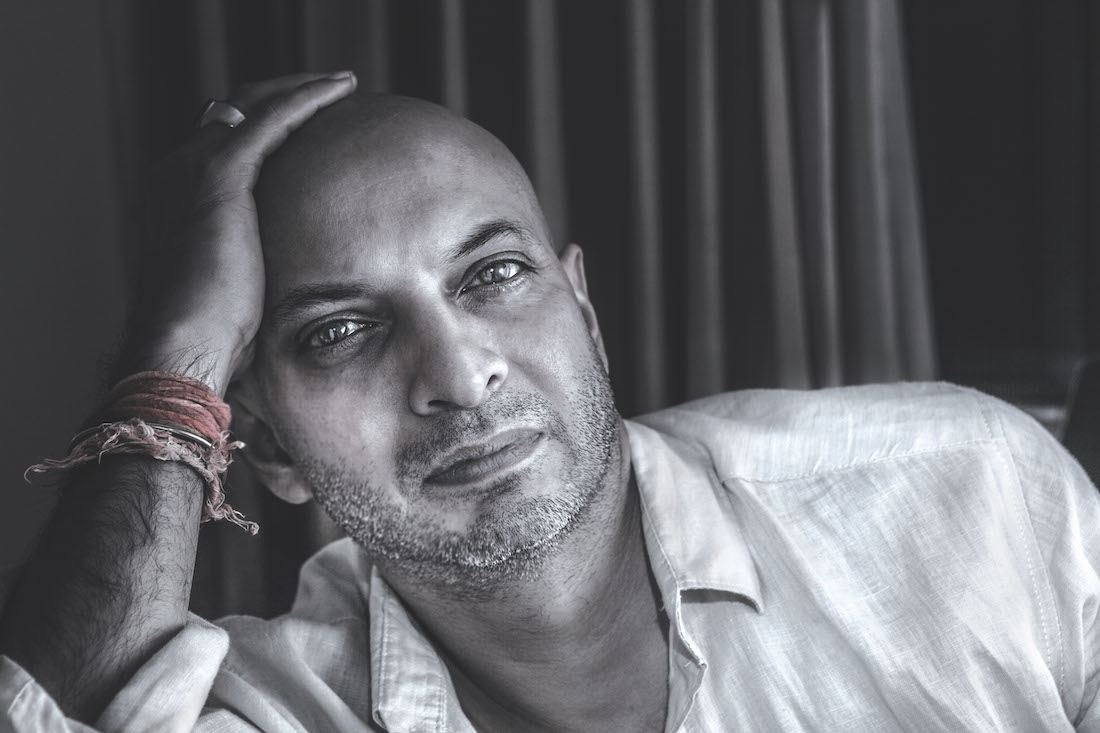

Not so very often, a novel emerges in the literary landscape that challenges the reader's expectations with its eccentricity, yet the madness is deliberate and methodical, making it revolutionary. Such is the case with The Selected Works of Abdullah the Cossack. The second book by the bestselling author of Home Boy, which was awarded the inaugural DSC Prize for South Asian Literature, H.M. Naqvi's new work is a gamut of hyperbolic disorder, all guided by an unaccomplished man and his quest for meaning, Abdullah. What ensues is a narrative full of ranmbuctiousness and allusiveness that is riveting, all set against the vibrant 'Currachee’.
We spoke to Naqvi about his relationship with writing and the creation of his grand comedy.
How were you led to pursue the world of the written word and what is your relationship with writing?
My relationship with writing extends back decades to my childhood. The imperative to put pen to paper might be genetic – we have poets, a couple of novelists, a historian, an art critic in the clan – or with a function of negotiating loneliness – we moved around a lot – but at this moment in history, the matter is academic. I can tell you this much: I derive my self-worth and bread and butter from the few hundred words of prose I generate every night, come hell or high water.
“I derive my self-worth and bread and butter from the few hundred words of prose I generate every night, come hell or high water.”
What was the inspiration behind writing The Selected Works of Abdullah the Cossack?
One night six, seven years ago, I was out at a friend’s flat by the sea. It was lovely, moonlit, late summer, evening and there was music in the air – my friend had called a few musicians – but feeling restless, I left. I went home and began writing. It had been almost three years since the publication of Home Boy. I wrote all night. I wrote the first couple of pages of The Selected Works of Abdullah the Cossack. It was almost as if somebody was speaking to me, almost if I were transcribing a voice. Who did it belong to? I’d learn later.
The narrative of the book is so rambunctious, almost Tristram Shandian in many ways. What was your writing process like?
Structuring a narrative, a novel has always been a somewhat experimental exercise. Different themes, subjects, or voices demand different treatments. It’s whimsical, organic process, trial by error.
“Perhaps there’s some of Abdullah in me, some of me in Abdullah. Perhaps he is like us all: somebody with fears and anxieties, hopes and ambitions, somebody who yearns for meaning in life.”
How did you find your protagonist, Abdullah?
Perhaps he is a composite of character I have come across over the years in this city or elsewhere. Perhaps there’s some of Abdullah in me, some of me in Abdullah. Perhaps he is like us all: somebody with fears and anxieties, hopes and ambitions, somebody who yearns for meaning in life.
What’s next for you?
I need to get my cholesterol and B12 tested, my car fixed and a few trousers stitched. I would like to travel a little – I’ve made a little money again – and generally do things I’ve not been able to do for a long time. In the longer run, I hope to write five more books before I am done. I have the next one in mind. I don’t know when I will commit words to paper but I am in to tearing rush. This is not a sprint. It’s a marathon. You need to catch your breath once in a while.
Text Nidhi Verma